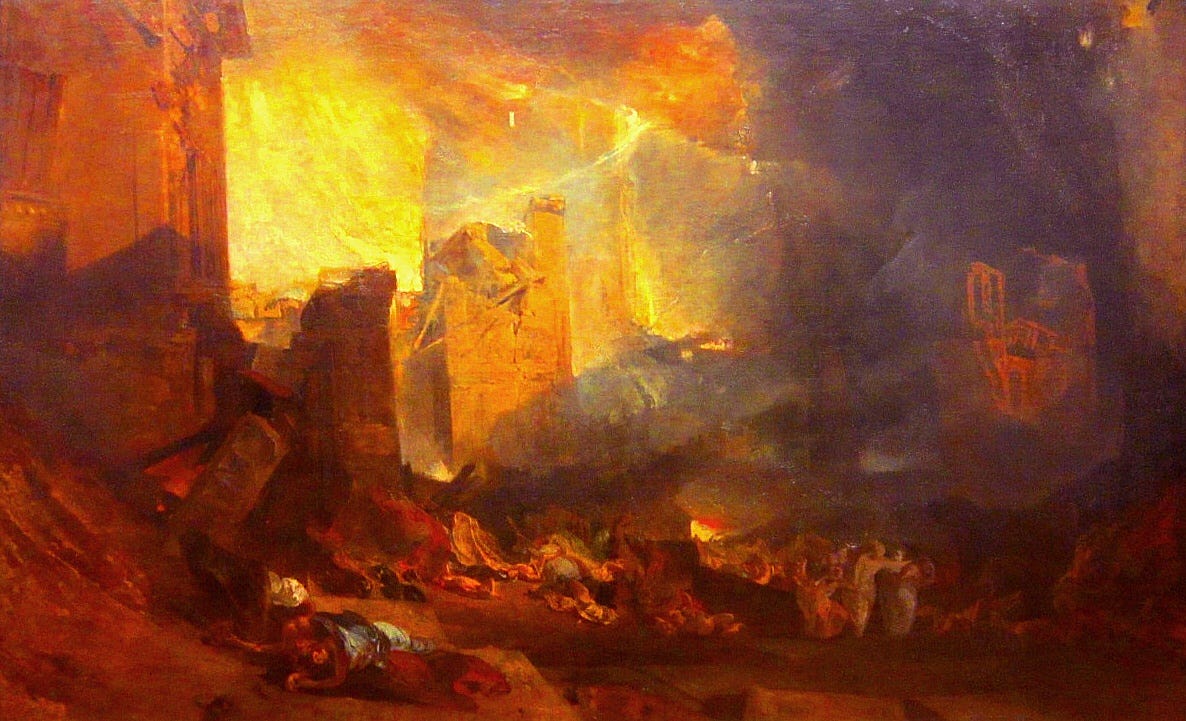The common journalistic technique of focusing on one individual in order to bring attention and clarity to a global, complex issue is referred to as “putting a human face on the story.” There are numerous examples, many Pulitzer Prize winners, which remind us behind every statistic there are living, breathing human beings. Perhaps the most iconic was Nick Ut’s photograph, taken during the Vietnam War of a young, naked girl suffering from napalm burns running down a road ahead of U.S. soldiers. Some claim the image was a factor in their own shift of sentiment away from supporting the war effort. Something the daily U.S. and Vietnamese casualty rates could not initially do.
Sometimes we need not even see the face. Consider Jeff Widener’s 1989 picture of “tank man,” a solitary protester standing in front of four Chinese tanks the day following the massacre of students in Tiananmen Square. Or Spider Martin’s snapshot of a woman’s blistered feet after a day of marching in Selma, Alabama on “Bloody Sunday.”
Many people prefer not to look. Some find the pictures more obscene than the events they chronicle. They are shocked the media would reproduce the images.* But that is the point. They are designed to shock us. Shock us out of our apathy. Our complicity. And out of our lack of connection to the individuals, often innocent people, captured in horrific situations and unbearable conditions.
 This morning we were again exposed to one of these personal moments behind the headlines. The Associated Press “put a human back,” actually two backs, on the narrative of the continuing and unnecessary tragedy on our Southern border. Julia Le Duc’s photograph depicts an El Salvadoran father Oscar Ramirez and his 23-month old daughter Valeria who drowned attempting to cross the Rio Grande River, only because the family had been denied access at a border crossing to the LEGAL (yes LEGAL) procedure by which refugees can seek asylum under UNITED STATES and INTERNATIONAL LAW.
This morning we were again exposed to one of these personal moments behind the headlines. The Associated Press “put a human back,” actually two backs, on the narrative of the continuing and unnecessary tragedy on our Southern border. Julia Le Duc’s photograph depicts an El Salvadoran father Oscar Ramirez and his 23-month old daughter Valeria who drowned attempting to cross the Rio Grande River, only because the family had been denied access at a border crossing to the LEGAL (yes LEGAL) procedure by which refugees can seek asylum under UNITED STATES and INTERNATIONAL LAW.
If their sacrifice in any way contributes to an easing of the suffering Donald Trump has inflicted on those who look to America with hope and promise, it makes me wonder, when Trump refers to “bad hombres” invading America, should we be more worried about the “bad hombres” in the White House?
POSTSCRIPT: THE GOOD, THE BAD AND THE EVEN UGLIER
In recent posts, I have been highly critical of both the media and the evangelical community, but coverage of the Trump administration’s actions and defense of those actions which require infants and children to live in sub-human conditions seems to have turned a few hearts, even among Donald Trump’s staunchest supports. Yesterday, in response to the Associated Press stories about the detention center in Clint, Texas, Dr. Russell Moore, president of the Ethics and Religious Liberty Commission of the Southern Baptist Convention, tweeted:
The reports of the conditions for migrant children at the border should shock all of our consciences. Those created in the image of God should be treated with dignity and compassion, especially those seeking refuge from violence back home. We can do better than this.
One could expect no louder clarion call from the religious right to remind Donald Trump and Mike Pence of Jesus’ teachings. Sadly, some turned the other cheek (or should I say a deaf ear). Among those was Jerry Falwell, Jr., president of Liberty College, who responded to Dr. Moore as follows:
Who are you @drmoore? Have you ever made a payroll? Have you ever built an organization of any type from scratch? What gives you authority to speak on any issue? I’m being serious. You’re nothing but an employee- a bureaucrat.
Maybe Falwell missed the Bible lesson when, in John 2:16, Jesus says of money changers, “Stop turning my Father’s house into a market!”
Was I surprised? No and yes. No, this is the same faux Christian who gives more mulligans to Trump than revelers hand out strings of beads at a Mardi Gras parade. I am, however, bewildered he could not come up with a more clever retort. Maybe, “I’ll say it with great respect, these children are not my type.”
*NOTE: USA Today, after warning readers of the graphic nature of Le Duc’s photograph, wrote, “We believe the photo is important in telling the story of what is happening at the border.”
For what it’s worth.
Dr. ESP
/https://www.thestar.com/content/dam/thestar/news/world/us/2019/05/25/correction-damage-at-noahs-ark-attraction-story/NYAG301NY112-75_2016_185812.jpg) The first comes straight from the an article in Friday’s Washington Post, “Lawyers for Noah’s Ark theme park are suing its insurance company for rain damage.” Although the deluge did not last for 40 days and nights, the nearby city of Williamstown, Kentucky recorded over 40 inches of rain during the preceding 12 months. While the $120 million tourist attraction was unharmed, the road leading to it was washed out.
The first comes straight from the an article in Friday’s Washington Post, “Lawyers for Noah’s Ark theme park are suing its insurance company for rain damage.” Although the deluge did not last for 40 days and nights, the nearby city of Williamstown, Kentucky recorded over 40 inches of rain during the preceding 12 months. While the $120 million tourist attraction was unharmed, the road leading to it was washed out. The second iteration is at Sodom and Gommorah, pictured here. Look familiar? The only difference is God did not need dragons to obliterate a city.
The second iteration is at Sodom and Gommorah, pictured here. Look familiar? The only difference is God did not need dragons to obliterate a city. In what often appears to be a random existence, Carl Jung tells us there is synchronicity. Consider the following example of symmetry. Two weeks ago tonight Robert Mueller submitted his report on Russian interference in the 2016 presidential election. Two weeks from tonight, Jews around the world and their guests will come together to once again celebrate Passover, a holiday which commemorates the exodus from Egypt. The ceremony is called a Seder (literally Hebrew for “order”) which centers on the retelling of the story of the Israelites’ freedom from slavery and journey to the promised land.
In what often appears to be a random existence, Carl Jung tells us there is synchronicity. Consider the following example of symmetry. Two weeks ago tonight Robert Mueller submitted his report on Russian interference in the 2016 presidential election. Two weeks from tonight, Jews around the world and their guests will come together to once again celebrate Passover, a holiday which commemorates the exodus from Egypt. The ceremony is called a Seder (literally Hebrew for “order”) which centers on the retelling of the story of the Israelites’ freedom from slavery and journey to the promised land.